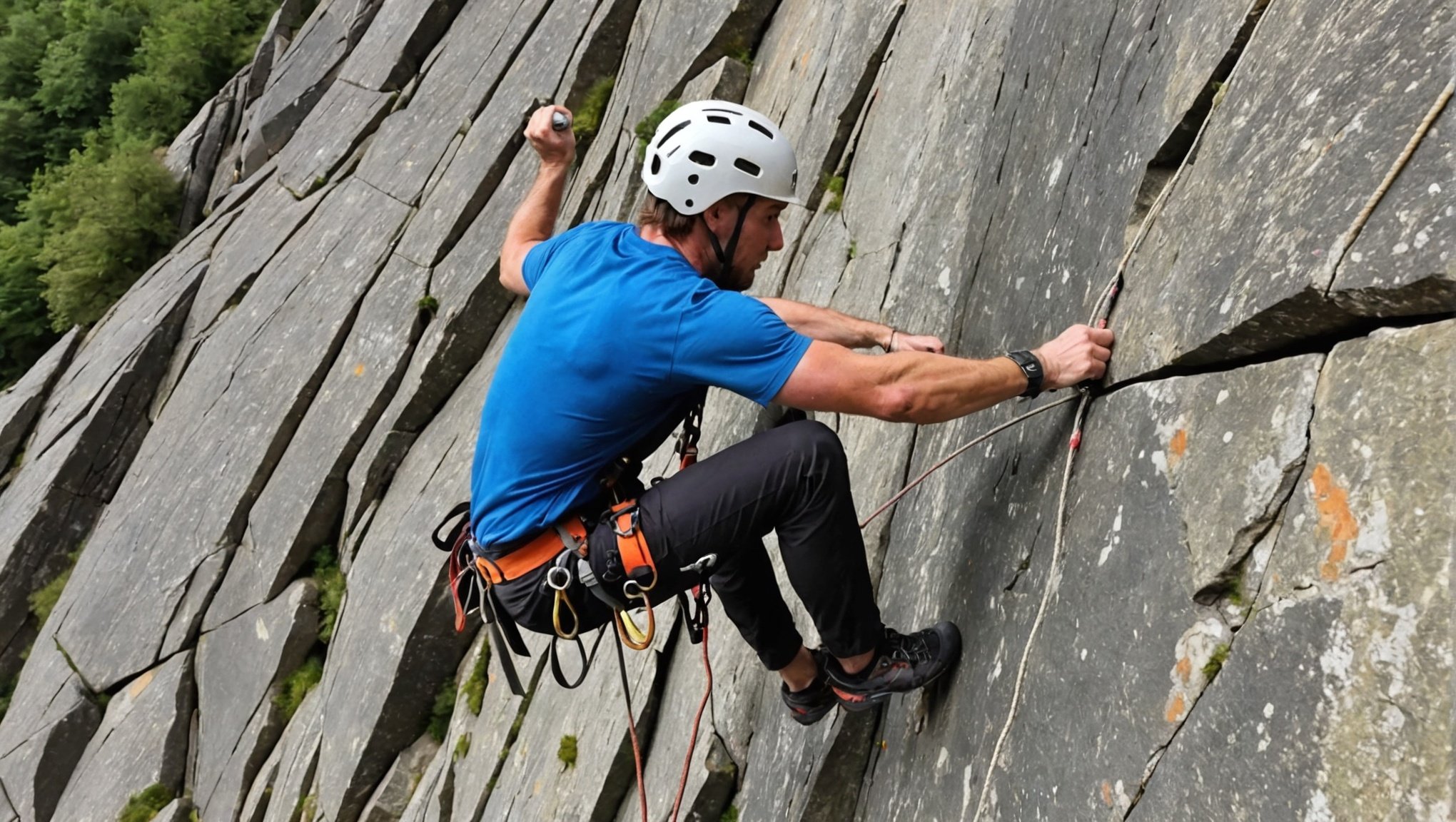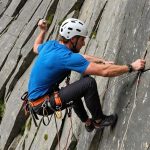Outdoor rock climbing offers more than just physical challenge; it enhances mental clarity and well-being. For adults in the UK, engaging with nature while scaling heights cultivates focus, reduces stress, and fosters resilience. The combination of breathtaking landscapes and adrenaline-infused experiences provides a unique escape from daily life, allowing climbers to reconnect with themselves. Discover how this exhilarating activity can unlock mental clarity and transform attitudes toward everyday challenges.
Understanding Mental Health Benefits of Outdoor Rock Climbing
Engaging in outdoor activities like rock climbing offers numerous mental health benefits. In the UK, adults often face mental health challenges such as stress, anxiety, and depression. These issues can significantly impact one's quality of life, making it essential to explore activities that promote mental well-being.
Also read : Uncovering Hidden Sugars: Essential Awareness for UK Consumers
Research studies have shown a strong link between outdoor rock climbing and improved mental clarity. The act of climbing requires intense focus and concentration, which can help individuals clear their minds of daily stressors. By being present in the moment, climbers often experience a sense of mental freedom and clarity, reducing anxiety levels.
The psychological benefits of rock climbing extend beyond stress relief. Regular participation in this outdoor activity can enhance resilience and boost confidence. Overcoming the physical and mental challenges associated with climbing fosters a sense of accomplishment, which can translate into increased self-esteem and a more positive outlook on life.
Also to read : Boost Your Focus: Effective Nutritional Tips for UK Office Workers to Enhance Concentration
Rock climbing also encourages mindfulness, as climbers must carefully plan each move and adapt to changing conditions. This focus on the present moment can be a powerful tool for managing stress and enhancing overall mental health. By incorporating rock climbing into their routine, individuals can experience significant improvements in their mental well-being and overall quality of life.
Rock Climbing as a Tool for Enhanced Mental Clarity
Engaging in physical activities like rock climbing can significantly boost mental clarity. The physical exertion involved in climbing stimulates the release of endorphins, which are known to improve mood and reduce stress. This surge of endorphins can lead to a clearer, more focused mind, allowing individuals to tackle daily challenges with increased mental acuity.
The natural environment plays a crucial role in enhancing cognitive benefits. Immersing oneself in nature has been shown to improve concentration and attention span. The serene and often breathtaking landscapes encountered during outdoor climbing can help climbers disconnect from distractions, fostering a deeper connection with their surroundings and themselves.
Specific cognitive improvements observed in climbers include heightened focus and improved problem-solving skills. The necessity to plan and execute each move requires climbers to engage in strategic thinking and quick decision-making. This mental exercise not only sharpens cognitive abilities but also enhances the ability to remain present and attentive in various aspects of life.
Incorporating rock climbing into one's routine can lead to profound cognitive benefits, enhancing both mental clarity and overall well-being. By challenging the mind and body simultaneously, climbers can experience a unique blend of physical and mental growth.
Personal Testimonials from UK Rock Climbers
Personal stories and experiences from UK rock climbers reveal the profound impact this activity can have on mental health. Many climbers share compelling testimonials about how climbing has transformed their lives. These case studies often highlight significant mental improvement, showcasing the activity's potential as a therapeutic tool.
One climber, Sarah, recounts how regular climbing sessions helped her manage anxiety. She describes feeling overwhelmed by daily stressors before discovering climbing. The necessity to focus on each move provided her with a mental escape, allowing her to leave her worries on the ground. Sarah's experience is echoed by many, forming a common theme in these personal stories.
Another climber, Tom, shares his journey of overcoming depression through climbing. He speaks of the sense of accomplishment and confidence gained after each climb, which gradually improved his self-esteem. Tom's case study illustrates the transformative power of climbing, highlighting its role in fostering resilience and positive mental change.
These testimonials underscore the shared experiences of climbers, who often report enhanced mental clarity and emotional well-being. By exploring these personal stories, we gain a deeper understanding of how rock climbing can serve as a powerful tool for mental health improvement.
Getting Started with Outdoor Rock Climbing in the UK
Embarking on the journey of beginner climbing in the UK can be both exciting and rewarding. To start, it’s crucial to equip yourself with the right gear and equipment. Essential items include climbing shoes, a harness, a helmet, and a belay device. These pieces ensure safety and enhance your climbing experience. Additionally, investing in a good quality chalk bag and rope is advisable.
Popular Climbing Locations
The UK offers a plethora of stunning climbing locations suitable for beginners. The Peak District, with its gritstone edges, is a favourite among novices. Meanwhile, Snowdonia in Wales provides a mix of routes catering to various skill levels. For those in Scotland, the Cairngorms offer breathtaking landscapes and a range of climbing opportunities.
Finding Climbing Classes or Guides
To ease into this thrilling outdoor activity, consider enrolling in climbing classes or hiring guides. Many climbing centres offer beginner courses that cover fundamental techniques and safety practices. Guides can provide personalised instruction and local insights, making your climbing experience both safe and enjoyable.
By selecting the right gear, exploring popular spots, and seeking expert guidance, beginners can confidently dive into the world of outdoor rock climbing in the UK.
Safety Considerations for Outdoor Rock Climbing
Ensuring climbing safety is crucial for a rewarding and secure outdoor climbing experience. Implementing effective risk management strategies can significantly reduce potential hazards.
When it comes to outdoor rock climbing, adhering to safety protocols is non-negotiable. These protocols are designed to protect climbers from unforeseen risks and ensure a safe climbing environment. One primary aspect of climbing safety is the use of appropriate safety gear. Beginners should equip themselves with essentials like a helmet, harness, and climbing shoes. A reliable belay device is also vital to ensure safe ascents and descents.
Assessing climbing conditions is another critical component of risk management. Climbers should evaluate weather conditions, rock stability, and route difficulty before starting a climb. Understanding these factors can help in making informed decisions and avoiding unnecessary risks.
Here are some tips for managing climbing safety:
- Always perform a thorough gear check before each climb.
- Stay updated on weather forecasts to avoid climbing in adverse conditions.
- Communicate effectively with your climbing partner to ensure mutual safety.
By prioritising climbing safety and employing effective risk management practices, climbers can enjoy their outdoor adventures with peace of mind.
Resources and Climbing Clubs in the UK
Joining climbing clubs and utilising community resources can significantly enhance your climbing experience and mental well-being. Across the UK, there are numerous reputable clubs that offer a supportive environment for climbers of all levels.
Reputable Climbing Clubs
- The British Mountaineering Council (BMC): This organisation supports various climbing clubs throughout the UK, offering resources and events.
- Climbers' Club: Known for its extensive network, this club provides access to exclusive climbing locations and social events.
- The Alpine Club: As the oldest mountaineering club in the world, it offers a rich history and a wealth of climbing knowledge.
Online Resources and Support Networks
Beyond physical clubs, online resources provide valuable information and community support. Websites like UKClimbing and Mountain Project offer forums, route databases, and climbing news. These platforms help climbers connect, share experiences, and gain insights into climbing techniques and safety.
Benefits of Joining a Climbing Community
Engaging with a climbing community not only enhances your skills but also offers mental health benefits. Being part of a supportive network can reduce stress, increase motivation, and provide a sense of belonging, all of which are crucial for mental well-being.
The Role of Nature in Mental Well-being
Spending time in nature offers significant mental health benefits, often referred to as nature therapy. Exposure to outdoor environments can profoundly impact one's mental state, offering a natural remedy for stress and anxiety. This connection to nature promotes relaxation and emotional balance, contributing to overall environmental health.
Being in nature reduces stress by lowering cortisol levels, the hormone responsible for stress responses. Studies show that even brief exposure to green spaces can lead to noticeable reductions in stress and anxiety. The calming effects of outdoor environments help individuals feel more grounded and present.
Nature therapy involves immersing oneself in natural settings, which can lead to improved mood and cognitive function. The sights, sounds, and scents of nature engage the senses, promoting mindfulness and mental clarity. This sensory engagement distracts from negative thoughts, fostering a sense of peace.
The outdoor benefits extend beyond stress reduction. Time spent in nature can boost creativity, enhance problem-solving skills, and improve overall well-being. These therapeutic effects make outdoor activities a valuable component of a healthy lifestyle. By incorporating regular nature exposure into daily routines, individuals can harness these benefits to support their mental health.
Complementary Activities to Enhance Mental Health Benefits
Engaging in fitness activities alongside rock climbing can further boost mental well-being. Activities such as hiking, yoga, and cycling are excellent complements. These activities not only enhance physical fitness but also promote mental clarity and relaxation, contributing to a more balanced lifestyle.
Mindfulness practices such as meditation and deep-breathing exercises can be integrated with climbing routines. These practices help climbers maintain focus and manage stress, enhancing their climbing experience. By incorporating mindfulness, individuals can achieve a heightened state of awareness, which is beneficial for both climbing and daily life.
A holistic health approach is crucial for optimal mental health. This involves addressing various aspects of well-being, including physical, emotional, and social health. By combining rock climbing with other outdoor activities and mindfulness practices, individuals can create a comprehensive strategy for managing stress and improving mental clarity.
- Hiking: Provides cardiovascular benefits and a connection with nature.
- Yoga: Improves flexibility and mental focus.
- Cycling: Enhances endurance and offers a sense of freedom.
These activities, when combined with rock climbing, create a well-rounded routine that supports mental and physical health, offering a sustainable path to improved mental well-being.
Future Research and Trends in Outdoor Activities
Exploring the intersection of climbing research and mental health trends reveals promising avenues for enhancing well-being. Current studies delve into how rock climbing influences mental health, highlighting its potential as a therapeutic intervention. Researchers are particularly interested in the psychological resilience developed through climbing, as well as its impact on reducing anxiety and depression.
Emerging outdoor activity studies suggest a growing interest in the mental health benefits of engaging with nature. This trend is anticipated to continue, with more individuals in the UK seeking outdoor activities to improve their mental health. As societal awareness of mental well-being increases, participation in activities like rock climbing is expected to rise.
Potential areas for further exploration include the long-term effects of regular climbing on mental health and the specific mechanisms by which it enhances cognitive function. Understanding these aspects could lead to more targeted interventions and support for individuals with mental health challenges.
Future research may also investigate the role of community and social interactions in climbing, as these elements are believed to contribute significantly to the activity's therapeutic benefits. By focusing on these areas, researchers can uncover deeper insights into how outdoor activities can support mental health.
















